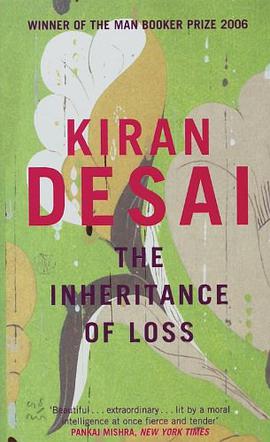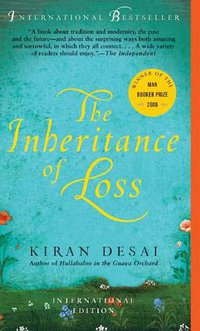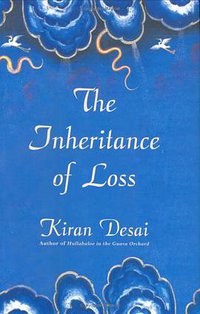The Inheritance of Loss
Douban
Kiran Desai
overview
From Publishers Weekly
Starred Review. This stunning second novel from Desai (Hullabaloo in the Guava Orchard) is set in mid-1980s India, on the cusp of the Nepalese movement for an independent state. Jemubhai Popatlal, a retired Cambridge-educated judge, lives in Kalimpong, at the foot of the Himalayas, with his orphaned granddaughter, Sai, and his cook. The makeshift family's neighbors include a coterie of Anglophiles who might be savvy readers of V.S. Naipaul but who are, perhaps, less aware of how fragile their own social standing is—at least until a surge of unrest disturbs the region. Jemubhai, with his hunting rifles and English biscuits, becomes an obvious target. Besides threatening their very lives, the revolution also stymies the fledgling romance between 16-year-old Sai and her Nepalese tutor, Gyan. The cook's son, Biju, meanwhile, lives miserably as an illegal alien in New York. All of these characters struggle with their cultural identity and the forces of modernization while trying to maintain their emotional connection to one another. In this alternately comical and contemplative novel, Desai deftly shuttles between first and third worlds, illuminating the pain of exile, the ambiguities of post-colonialism and the blinding desire for a "better life," when one person's wealth means another's poverty.
Copyright © Reed Business Information, a division of Reed Elsevier Inc. All rights reserved.
From Booklist
*Starred Review* Desai's Hullabaloo in the Guava Orchard (1998) introduced an astute observer of human nature and a delectably sensuous satirist. In her second novel, Desai is even more perceptive and bewitching. Set in India in a small Himalayan community along the border with Nepal, its center is the once grand, now decaying home of a melancholy retired judge, his valiant cook, and beloved dog. Sai, the judge's teenage granddaughter, has just moved in, and she finds herself enmeshed in a shadowy fairy tale-like life in a majestic landscape where nature is so rambunctious it threatens to overwhelm every human quest for order. Add violent political unrest fomented by poor young men enraged by the persistence of colonial-rooted prejudice, and this is a paradise under siege. Just as things grow desperate, the cook's son, who has been suffering the cruelties accorded illegal aliens in the States, returns home. Desai is superbly insightful in her rendering of compelling characters and in her wisdom regarding the perverse dynamics of society. Like Salman Rushdie in Shalimar the Clown (2005), Desai imaginatively dramatizes the wonders and tragedies of Himalayan life and, by extension, the fragility of peace and elusiveness of justice, albeit with her own powerful blend of tenderness and wit. Donna Seaman
Copyright © American Library Association. All rights reserved




